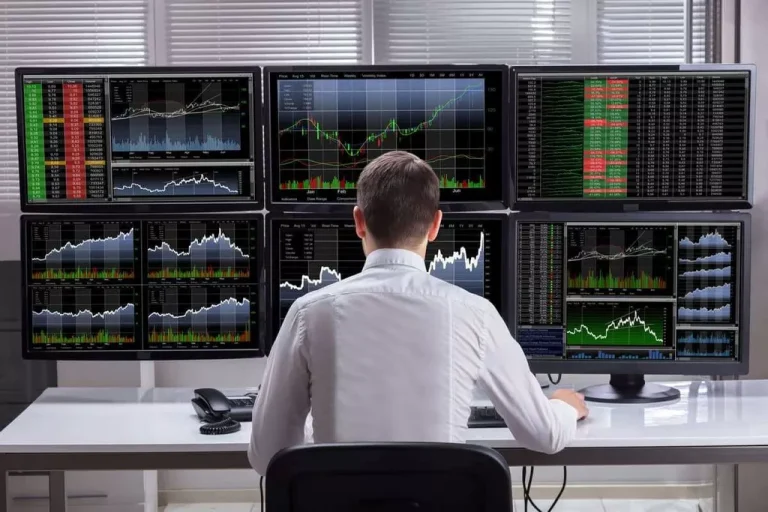Co-location servers, however, are high-speed computer systems that are positioned bodily close to the exchange’s servers. By utilizing a co-location server, merchants can cut back the time it takes for their orders to be transmitted to the exchange, doubtlessly permitting them to get a better worth on their trades. You wouldn’t discover your broker running ahead of you to buy or sell when he comes to find out about your massive orders.

In other words, even online trading requires some form of intervention by your dealer on the finish and hence it would take a while before your order is definitely positioned in the trading system of the inventory change. Direct market entry (DMA) and co-location servers are two various varieties of buying and selling techniques which are used to facilitate the execution of trades. To use DMA, merchants will must have a trading account with a DMA-enabled dealer, as well as a depository participant account and a clearing member account. They should additionally meet certain eligibility criteria and complete the required documentation. Institutions offering DMA providers must be registered with SEBI as trading members of the relevant trade.
This may be particularly beneficial for merchants who are looking to execute large orders or who have to trade a excessive volume of shares. This will, of course, be subject to necessary amendments to byelaws and regulations of the inventory exchanges. The regulator had already allowed institutional investors similar to Category III Alternative Investment Funds (AIFs), Portfolio Management Services and Mutual Funds to participate within the ETCD market. This permission is subject to certain circumstances that require brokers to comply with process for software for DMA, operational specifications, client authorisation, and broker-client agreement, danger management, amongst others.
Sebi Allows Direct Market Access To Registered Fpis For Taking Part In Etcds
Because traders have direct access to the exchange’s order guide, they are responsible for managing the risk of their trades, including making certain that they have sufficient collateral to cover any potential losses. As a leading brokerage firm in Qatar, we provide sophisticated traders direct control over order entry and execution. Our high-speed infrastructure and customized buying and selling options help you seize fleeting market alternatives. Once you call your broker for placing an order, your dealer has to manually place your order into the trading system of the stock exchange through his trading terminal.
- However, just one stage of sub-delegation is allowed, and the broker-dealer allowing sub-delegation must be capable of identify the completely different order flows originating from such sub-delegations.
- This may be notably beneficial for merchants who are wanting to execute large orders or who need to commerce a high quantity of shares.
- Direct Market Access (DMA) facilitates the shoppers of a broker to directly access the trade buying and selling system through the broker’s infrastructure to position orders with out guide intervention by the broker.
- This permission is topic to sure circumstances that require brokers to observe procedure for software for DMA, operational specifications, consumer authorisation, and broker-client agreement, threat administration, among others.
- It can also be possible that a number of the pages linked may become inactive after the lapse of a period of time.
DMA is a facility that allows stockbrokers to supply their clients direct access to the buying and selling system of the stock change, bypassing handbook intervention. By utilising the stockbroker’s trading techniques, direct access reduces latency and ensures quicker trade execution. Moreover, it enhances transparency and minimises the danger of errors inherent in handbook order placement. Both SEBI and IFSCA mandate that stockbrokers preserve an audit trail for all DMA orders and trades. Stockbrokers are liable for implementing systems that can determine the actual consumer IDs for all DMA transactions.
Data-protection Within The Worldwide Arbitration Regime
However, to make sure danger administration and mitigation, orders routed via clients’ trading purposes by way of SA should move through the pre-trade risk-management layer provided by the inventory change. Parameters for these risk- management controls are determined and configured by the broker-dealer registered with IFSCA and authorised to provide SA facilities. Before extending the SA facility, broker-dealers must enter into agreements with investors and undertake due diligence. Stock exchanges are liable for verifying the presence of the settlement between the broker-dealer and the client before approving the SA facility.
However, only one level of sub-delegation is allowed, and the broker-dealer allowing sub-delegation should have the power to determine the different order flows originating from such sub-delegations. Operational flexibility is granted to inventory exchanges to ascertain needed measures, procedures, and pointers for DMA orders. These embody threat management, threat mitigation, technology and techniques audit policies, consumer eligibility for DMA amenities, cybersecurity, cyber resilience, entry management, and incident response.

Overall, DMA is usually a great tool for merchants who’re on the lookout for extra management over the execution of their trades and who are willing to tackle the additional threat administration duties that it entails. It is essential for merchants to rigorously contemplate the professionals Direct Market Access and cons of DMA earlier than deciding whether it’s the proper selection for their wants. One advantage of DMA in India is that it allows merchants to access the total depth of the market, somewhat than just the top of the e-book as is the case with another forms of buying and selling systems.
This association raises concerns as stockbrokers can potentially gain access to confidential and proprietary buying and selling methods employed by traders. Stockbrokers themselves must implement certain checks earlier than providing DMA amenities to their clients. They must set trading limits, publicity limits, and place limits for all DMA shoppers based on risk assessment, credit score quality, and out there margins.
Invoking India’s Money Laundering Regime For Environmental Crimes: Impact On Businesses
Your dealer would, in fact, not even know which stocks you’re currently picking or which shares you are presently dumping. The contributors of this blog haven’t reviewed the entire data on these sites or the accuracy or reliability of any information, data, opinions, advice, or statements on these sites. These third-party hyperlinks are provided solely for the aim of discussion and thinking on Indian company regulation and different related subjects. It can additionally be potential that a variety of the pages linked might turn out to be inactive after the lapse of a time frame. In September 2022, Sebi allowed FPIs to take part in the ETCDs so as to enhance depth and liquidity available within the market.
As inventory buying and selling underwent digitisation and shares became dematerialised, stock exchanges replaced physical trading with online terminals for stockbrokers. To tackle these points, regulatory bodies worldwide, together with SEBI in India, launched direct market access. Direct Market Access (DMA) is a facility which allows Members to offer their shoppers direct access to the change buying and selling system through their Computer to Computer Link (CTCL) infrastructure without handbook intervention by them. DMA facility is presently permitted by SEBI only to institutional purchasers and further prolonged to funding managers. Such institutional purchasers might use the providers of an investment supervisor or advisor or portfolio supervisor (“Investment Manager”) to avail the DMA facility, as talked about in the SEBI round. IFSCA is introducing sponsored access in India, a move anticipated to attract more traders to discover trading alternatives in the by-product phase.

When seamlessly and efficiently carried out, this facility has the potential to place IFSCA as a world securities trading hub and reshape the Indian securities market eternally. The democratisation of order placement, increased transparency, and improved risk management will profit investors and contribute to the growth and evolution of the securities market. SA amenities empower traders to transmit orders directly to the buying and selling system of the inventory change with out routing them through stockbrokers. SA not only maintains the confidentiality of clients’ sophisticated proprietary trading strategies but in addition reduces latency in buying and selling. While DMA permits traders to instantly access inventory exchange trading methods, they’re still bound to utilizing the stockbroker’s trading system.
Our stock exchanges—National Stock Exchange and Bombay Stock Exchange—use electronic buying and selling systems which automatically match the best buy order with the most effective promote order, without patrons and sellers or their brokers actually coming in touch with one another. To ensure systemic risk mitigation, IFSCA permits clients of broker-dealers to sub-delegate their DMA/SA facilities to their very own clients (sub-delegates). This is permitted if the sub-delegating client is an entity regulated by a securities market regulator that could presumably be a signatory to the International Organisation of Securities Commissions (IOSCO) multilateral memorandum of understanding (MoU).
Before granting DMA entry, stockbrokers must make positive that shoppers fulfil know your customer (KYC) and anti-money laundering (AML) necessities. Creditworthiness, risk-taking ability, and compliance monitor records are also evaluated. Stockbrokers must be happy with the client’s governance and ownership structure and their capability to fulfill monetary obligations.
Direct Market Access To Institutional Buyers
You are putting your order immediately within the electronic trading system of the inventory exchange; this curtails any loss of time in calling your broker. Better nonetheless, DMA also lets you use what is called algorithm trading or program buying and selling during which computer packages take choices of buying and selling in break https://www.xcritical.in/ up seconds with out waiting in your command. Direct market entry (DMA) is a trading system that allows traders to place orders immediately into the exchange’s order guide, bypassing the need for a broker or other intermediary. This allows merchants to have more management over the execution of their trades and doubtlessly achieve higher costs.
Our Providers
Direct Market Access (DMA) facilitates the clients of a dealer to directly entry the change buying and selling system by way of the dealer’s infrastructure to place orders without guide intervention by the broker. DMA is a system that permits traders to put orders instantly into the exchange’s order guide, bypassing the necessity for a broker or different intermediary. This offers merchants extra control over the execution of their trades and probably allows them to realize higher costs. One key difference between DMA and co-location servers is that DMA allows merchants to have direct access to the exchange’s order book, while co-location servers merely speed up the transmission of orders to the trade. DMA also sometimes requires merchants to have a direct trading account with the exchange, while co-location servers can be used by any trader who is ready to pay for the service.
To begin with, the regulator permitted FPIs to participate in cash settled non-agricultural commodity derivative contracts and indices comprising such non-agricultural commodities. Institutional buyers using program buying and selling can reap the benefits of value discrepancies that final for under fractions of seconds.
Ifsca Introduces Direct Market Entry And Sponsored Access: Remodeling Reward City Into A Global Securities Trading Hub
Additionally, stockbrokers and shoppers should enter into agreements that define the terms of DMA utilization, including restrictions on executing transactions on behalf of other people or entities. Clients must agree to abide by the assorted limits imposed by the stockbroker for DMA utilization, and the stockbroker retains the right to withdraw DMA amenities primarily based on predefined thresholds or other concerns instructed by the inventory change or regulator. Time was when buying and selling at stock exchanges used to seem like a shouting match in a fish market. Now all that is still is the click of the mouse, with very few face-to-face interactions together with your broker. Things are bound to turn out to be even more user-friendly for institutional investors with the introduction of what we name direct market access. The introduction of sponsored entry by IFSCA is a pivotal development that calls for close examination and offers important studying opportunities.
Compliance Officer overseeing compliance or risk-management features, such as the Chief Risk Officer or Chief Compliance Officer, are liable for setting these limits. Stockbrokers should make sure that all DMA orders pass through electronic/automated risk-management techniques, which validate threat parameters such as quantity limits, price range checks, order worth, and credit checks before orders are released to the stock trade. Earlier, all trading used to happen by physical interplay among brokers on the trading ground of inventory exchanges.


